Aristotle was a Greek philosopher from the 4th century BC who made seminal contributions to many fields including metaphysics, logic, ethics, politics, and literary criticism. He wrote Poetics, considered the first work of literary theory, which analyzed Greek tragedy and established principles for understanding dramatic art. In Poetics, Aristotle defines tragedy as an imitation of action that arouses pity and fear through catharsis. He identifies six elements of tragedy - plot, character, diction, thought, melody, and spectacle - and describes how they work together to achieve the desired emotional effect. Aristotle's analysis of tragedy set the standard for dramatic criticism for centuries.


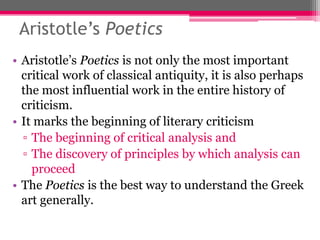



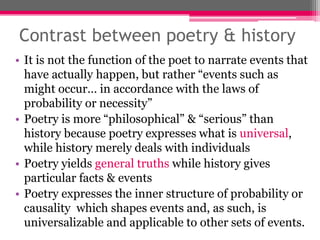










![Structure of a tragedy
• TRAGEDY is the “Imitation of an action that is
complete, whole and of a certain magnitude.”
▫ unity of plot
▫ express the universal [history expresses the
particular]
▫ events inspiring fear and pity
▫ reversal of the situation through recognition [of
persons]](https://image.slidesharecdn.com/aristotlensn-140629101724-phpapp01/85/Aristotle-nsn-18-320.jpg)
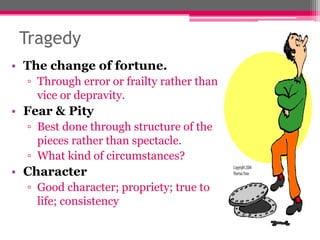


![Six elements of Tragedy…
Categorized in terms of means, manner and its
objects of dramatic imitation:
1. PLOT [objects of dramatic imitation]
2. CHARACTERS [objects of dramatic imitation]
3. DICTION [means]
4. THOUGHT [objects of dramatic imitation]
5. MELODY [means]
6. SPECTACLE [manner]](https://image.slidesharecdn.com/aristotlensn-140629101724-phpapp01/85/Aristotle-nsn-22-320.jpg)




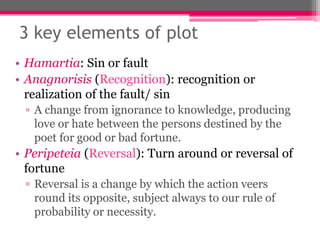

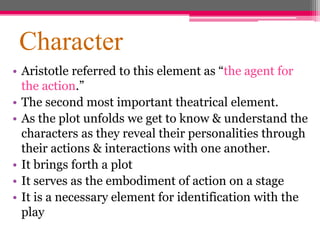
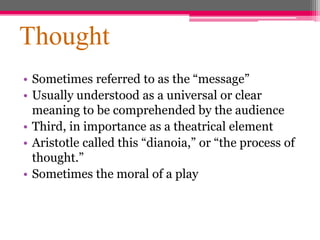




![Kinds of recognition
• By signs
• By letters [word or verbal inventions]
• By awakening a feeling
• By process of reasoning
• A composite kind of recognition involving false
inference on the part of one of the character
• By startling discovery [via incidents]](https://image.slidesharecdn.com/aristotlensn-140629101724-phpapp01/85/Aristotle-nsn-35-320.jpg)




